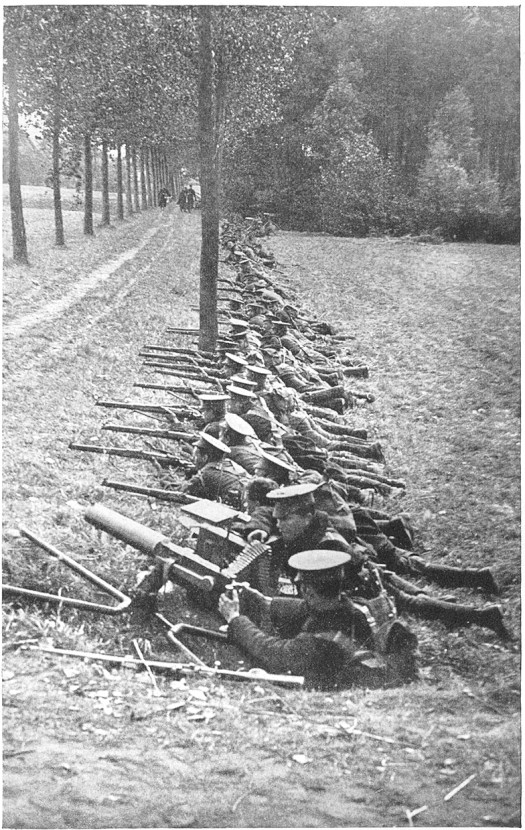An Honorable Surrender in France; Fears of Invasion in Britain
Special to The Great War Project
(26-27 September) Despite the extraordinary slaughter of the first two months of the war, the troops in the field develop a profound respect for each other. And they do not shrink from demonstrating this respect.
On this day a century ago, at the French town of St. Mihiel, the Germans mount the siege of the fortress of Camp des Romains. According to historian Martin Gilbert the artillery and grenade attacks on the French are heavy, and the French troops inside the fortress resist surrendering.
But they cannot hold out, and when the more than 500 surviving troops do leave the fortress, the New York Times reports, “they found their late opponents presenting arms before them in recognition of their gallant stand.
“They were granted the most honorable terms of surrender…
…their officers were allowed to retain their swords, and on the march to honorable captivity they were everywhere greeted with expressions of respect and admiration.”
On this same day in Belgium, the Germans mount artillery attacks against the Belgian fortresses at Antwerp, not far from the channel coast. Belgium is dotted with these fortresses, and those defending Antwerp are the last holdouts.
There is a fear among the British commanders that the fall of Antwerp will permit the Germans to seize the nearby ports on the English Channel. “possibly threatening Britain herself,” Gilbert reports.
The British and French decide to make a stand at Antwerp in the coming days. At the same time, the Germans are planning its bombardment.
On the same day, September 26th a century ago, Gilbert reports the Russian army pushes deep into Austrian territory on the Eastern Front, and some Russian cavalry even penetrate into Hungarian territory.
“It looks bad for the Austrians,” writes one German general on this day in 1914.
But the Germans move to help the Austrians, and Gilbert reports that the Germans are slowly seizing the Russian provinces of Poland. (Germany and Russia have divided and occupied Poland for more than a century.)
“Battles of great intensity were opening up for Poland the prospect of ending nearly 150 years of Russian rule,” writes Gilbert.
“The question of whether the new rulers, the Germans, would grant Poland autonomy or independence was still unresolved.”
So not quite two months into the war, the political status quo in eastern Europe is already under enormous stress.
Writes Gilbert, “Extreme German nationalists were calling for the creation of a permanent buffer zone between Germany and Poland, carved out of Russian territory, from which 16 million Poles would be deported into Russia, to make way for German settlers.”
These are political conflicts that the war unleashes and will not be resolved for one hundred years.


